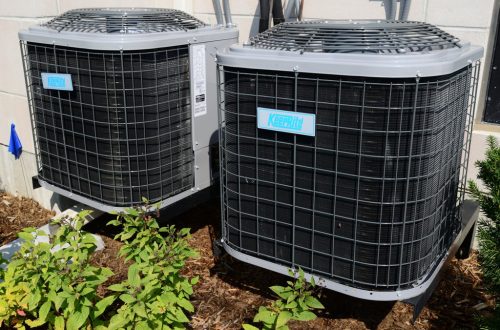Plumbing contractors are responsible for installing, repairing and maintaining plumbing systems in homes and buildings. They must be capable of carrying out physical labour while working at height. To be effective at their jobs, they need the stamina necessary for these demanding tasks and the physical stamina to work safely in high places.
Most plumbers start their careers as apprentices and require several years of on-the-job training before taking an exam and becoming licensed. Aside from formal education and training requirements, local regulations and codes must also be satisfied to qualify for licensure.
Job description
Plumbers are skilled professionals who work on various water and piping systems. They install bathtubs, sinks, showers, and toilets and fix clogged pipes and drains. In addition, they maintain water heating systems and install appliances using water, such as dishwashers and washing machines. Plumbers must identify and resolve numerous problems and have the stamina to perform physically demanding work.
There are various types of plumber Modbury close to my area, each specialising in different areas. A commercial plumber works on large plumbing systems in places such as schools, hospitals, and factories – such as schools or factories with complex plumbing needs like schools or factories with more complex requirements for installation or maintenance than homes typically do. Other specialisations of plumbing professionals include pipefitters or steamfitters who specialise in transporting chemicals or gases across systems.
An apprentice plumber is a new professional learning the trade while working under an experienced master plumber. Apprentice plumbers must complete a supervised apprenticeship program before receiving their license to practice plumbing systems. While they often start their careers by fixing leaky faucets or broken water pipes, apprentice plumbers also learn through observation, following directions, reading technical books and manuals about plumbing systems, and communicating with customers and co-workers.
Education and training requirements
Plumbing is an occupation that demands extensive training and knowledge of both industry standards and local regulations. A plumber Modbury close to my area can attain this knowledge through formal studies at vocational schools, an apprenticeship program (usually lasts at least two years and may last five), or college degree programs that offer similar coursework.
State licensing exams must be passed before being eligible to receive a license, while experience on-the-job is also a necessity for licensure.
Plumbers work in many settings, from homes and commercial buildings to factories. Their duties range from repairing water lines, installing new pipes and fixtures and maintaining existing ones to installing backflow preventer devices and septic system repairs. Furthermore, they must understand safety precautions, such as avoiding contact with raw sewage.
Some states impose specific licensing requirements for plumbers. These standards can differ based on both state and city.
Licensing requirements
Plumbing requires extensive training and experience for those aspiring to become skilled. Most states mandate licensing plumbers who wish to operate within their jurisdiction; this helps protect the public from untrained workers who could cause property damage or personal injuries without proper training or experience. Furthermore, plumbers must stay current with new technologies and codes; those not properly licensed could face fines or criminal charges.
Most plumbers complete an apprenticeship program lasting several years. This training typically includes on-the-job learning and classroom sessions on pipe system design, safety measures, tools and welding. Furthermore, students may attend technical schools to earn postsecondary degrees in this field – this specialised education is essential to becoming a master plumber.
An applicant for a master plumber license must possess at least ten years of experience, which must be documented, and pass an in-person written exam. Experience gained in military service, college or university coursework or registered apprenticeship can all count towards meeting this minimum experience requirement.
Journeyman plumber license applicants must possess at least four years of experience, a high school diploma or equivalent, and complete an apprenticeship training program approved by their state. Furthermore, they must pass WorkKeys achievement tests in Applied Math, Job-Specific Skills and Workplace Documents and Graphic Literacy, as well as pass a background check and drug test before being eligible to submit notarised affidavits from master plumbers that verify their work experience as well as pay for and sign for passport-sized photographs of themselves.
Work environment
Plumbers work environments differ significantly from most professions. Most plumbing jobs require an apprenticeship program consisting of classroom study and paid on-the-job training under the supervision of an experienced journeyperson plumber; typically, this lasts four to five years and may be sponsored by trade unions or employers.
As part of your career in this area, you may travel between different job sites, working weekends and evenings as needed. Furthermore, problems could arise quickly, requiring being on call as promptly as possible with critical thinking and professionalism in handling stressful situations.


